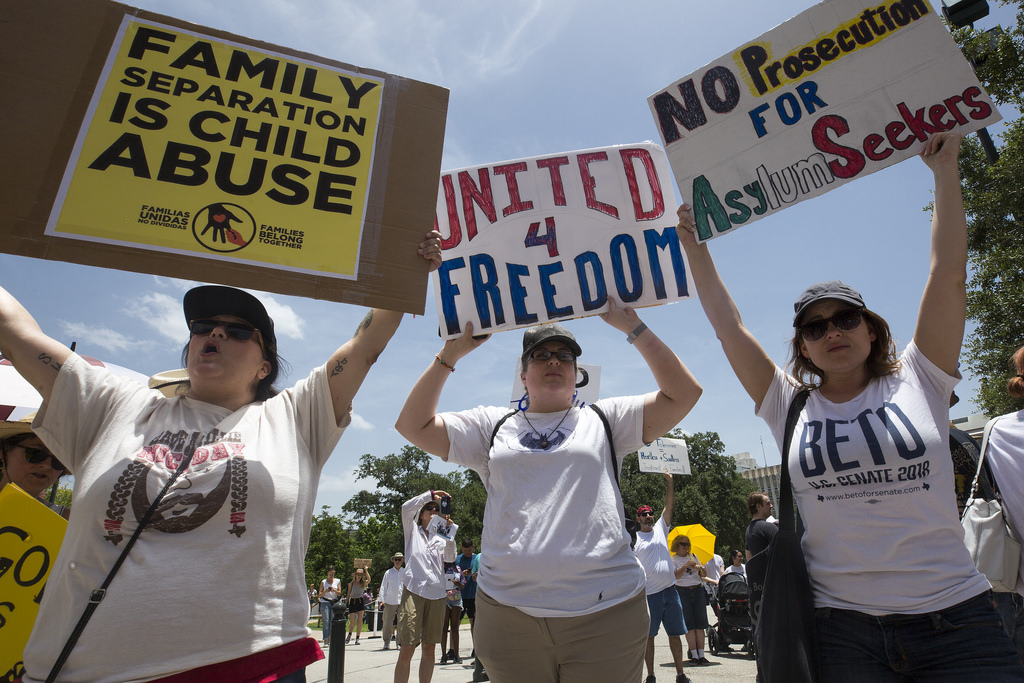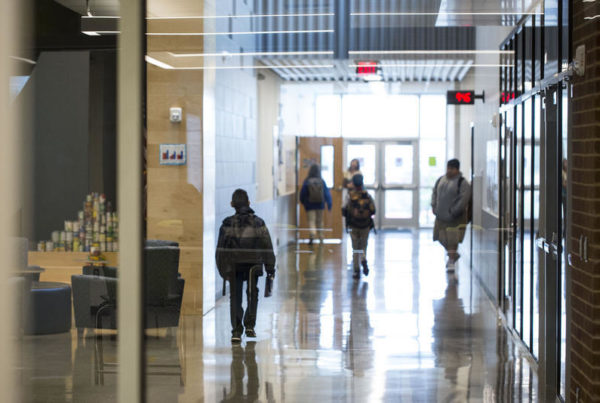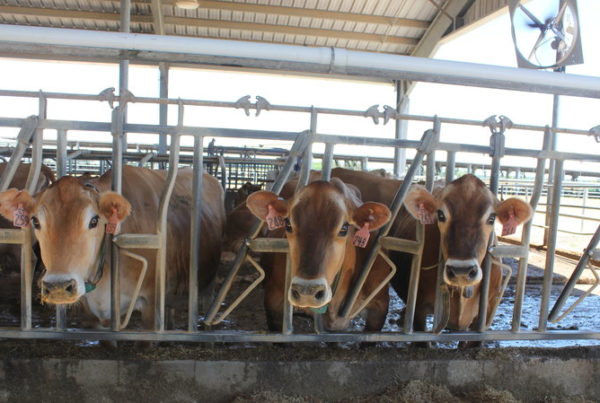A group of Texas lawmakers and legal experts is working on ways to address the increased detention of migrants, particularly children. And as Trey Shaar with KUT News reports, they’re looking ahead to the next legislative session.
The Mexican American Legislative Caucus and advocacy organizations want legislation to increase the transparency and accountability of immigrant detention in Texas. The state plays a role in part by licensing immigrant detention facilities.
MALC’s goals also include an expansion of no-cost legal representation, more access to detention facilities and more counselors educated in treating trauma.
Diego Bernal is a Democrat in the Texas House and chair of the caucus. He says even if the separation of parents and children has stopped, the trauma remains.
“The trauma that they have endured, the trauma that they are enduring cannot be overstated. I’ve visited these places. You’ve visited these places. These children are bewildered, they are ashen, they are confused.”
The deadline for reuniting children who had been separated from their parents at the border is this Thursday. Many of them are and will continue to be in detention before either being granted asylum or deported.
As migrant families are reunited, a Texas nonprofit is expanding an initiative to help cover their travel costs.
The Refugee and Immigrant Center for Education and Legal Services, or RAICES, announced it’s partnering with two other groups to create the Flights For Families Travel Help Desk.
Today we’re announcing a #FlightsForFamilies Travel Help desk in partnership with @FWDus and the @womenbelong campaign.
The American people stepped up where the American government has failed.
— RAICES (@RAICESTEXAS) July 24, 2018
The fund has $3 million to start. The money will go towards flights and hotels, as well as case managers and attorneys.
Alida Garcia is with FWD.us, one of the groups partnering with RAICES. During a Tuesday conference call, she explained that her organization has been helping immigrant families figure out what’s next once they’re released from detention – services like “helping families have a hotel stay, helping families get to the airport, helping families get through TSA to make their flights, helping families whose flights have been delayed.”
The Travel Desk is already operational.
Local officials are confirming that the final death toll in a massive apartment fire in a Central Texas college town this past Friday is five people. But the victims’ identities have still not been released.
More than 200 residents have been displaced by the blaze in San Marcos – most of them are students.
The Iconic Village apartment complex, where the fire started, was built in 1970. It was not equipped with a sprinkler system, which met building standards at the time.
San Marcos Fire Marshal Kelly Kistner says “there is no retroactive clause in the fire codes that require a building to go back and put sprinklers in. Today, the City of San Marcos is under the 2015 International Fire Code and even in that code, there is no provision that requires retrofitting.”
Texas State University and the city of San Marcos have announced several funds to help out students affected by the fire.

















